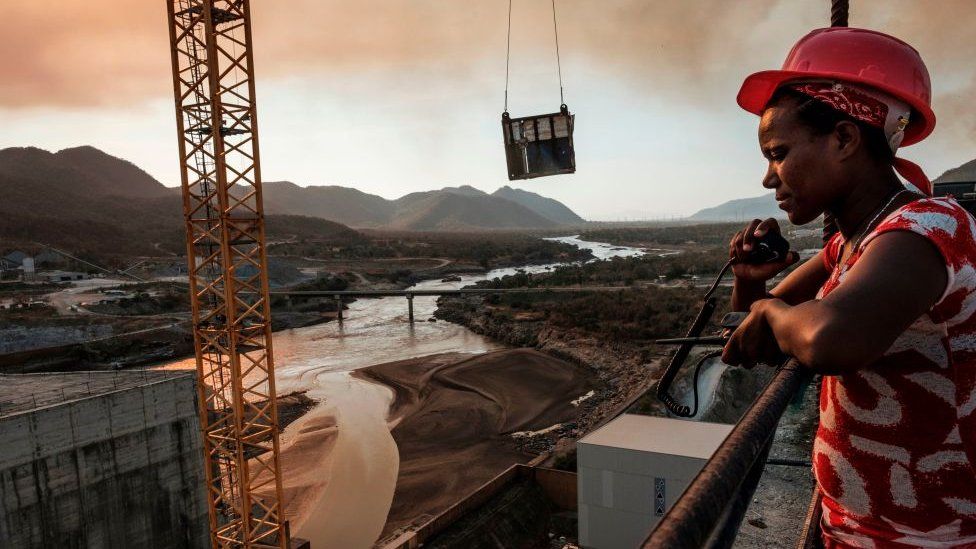Egypt accuses Ethiopia of violating law over controversial dam
- Published

Egypt has accused Ethiopia of violating international law after it received a notice saying that Ethiopia's dam upstream on the Nile is now filling up with water for a second year.
The hydroelectric dam has long been a source of tension in the region.
Egypt, which relies almost entirely on the Nile for its water, sees it as a possible existential threat. Ethiopia says it is vital for its development.
Decade-long negotiations over the dam have failed to reach a final agreement.
Recent African Union efforts have stalled and now Egypt and Sudan, which also sits downstream of the Grand Ethiopian Renaissance Dam (Gerd), have asked the UN Security Council to discuss the issue.
They want firm commitments over the timetable of the filling as well as the volume of water the Gerd will release.
Egypt said it was informed by Ethiopia that the second year of filling had begun. This has happened as the rainy season near the dam site gets under way.
In response, Egypt's Irrigation Minister Mohammed Abdel Ati said he had sent a letter to his Ethiopian counterpart informing him of "Egypt's categorical rejection of this unilateral measure", a statement said.
He also said it violated a 2015 agreement which said that the development of the dam should be based on "mutual understanding".
Sudan also received the notification from Ethiopia, the Bloomberg news agency reports.
"They sent a nonsense letter," its chief negotiator on the dam, Mustafa Hussein, is quoted as saying.
The foreign ministers of both countries, who are in New York ahead of Thursday's Security Council meeting, called Ethiopia's "unilateral move... a serious escalation [revealing] Ethiopia's bad intention".
"The second filling also violates international laws and norms about the usage of resources of trans-boundary rivers," they added.
But Ethiopia says that it is not deliberately filling up the dam. "Filling goes in tandem with the construction," a senior Ethiopian water ministry official told AFP news agency.
Ros Atkins on...why can’t Egypt and Ethiopia agree on the Nile dam?
Once fully operational, the Gerd is expected to supply 65 million Ethiopians with electricity. The authorities say it will transform people's lives and the country's development.
In a letter to the Security Council on Tuesday, Ethiopia's foreign ministry expressed its irritation about some of the diplomatic moves around the dam.
It accused the Arab League, which appears to be backing Egypt and Sudan, of meddling. Ethiopia says that it is an issue for the African Union and not the Arab League.
Related Topics
- Published30 July 2020
- Published24 June 2021
- Published10 July 2020
- Published8 July 2021